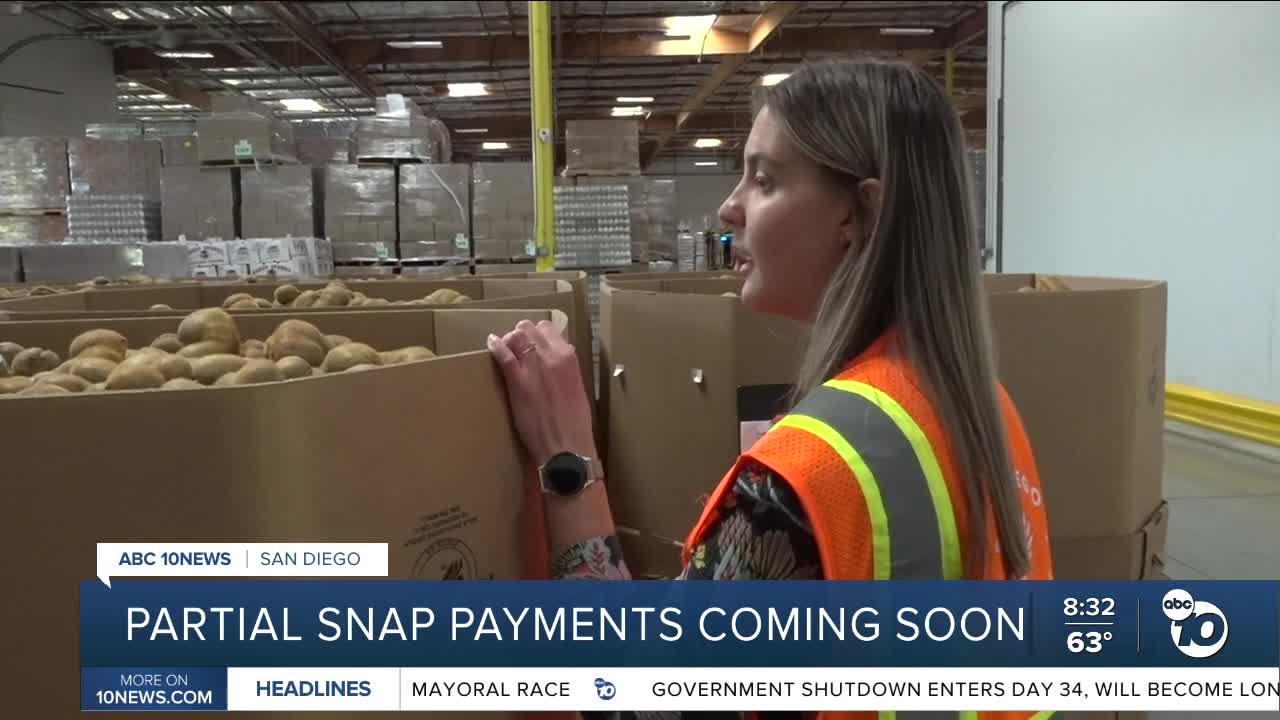SAN DIEGO (KGTV) — The San Diego Food Bank is one of many critical lifelines for families relying on SNAP benefits.
Monday morning, Secretary of Agriculture Brooke Rollins announced on X funds are on the way. However, SNAP recipients still don't know when the partial payments will hit their cards.
This comes just days after they didn't receive their November 1st funds.
Monday marks day 34 of the government shutdown. It's not just federal workers and active duty military who are missing paychecks anymore; now, 42 million people who rely on SNAP benefits are impacted by the shutdown.
Food banks are stepping up to fill the gap. The San Diego Food Bank is working hard to notify everyone of their eligibility for other programs they offer.
"In addition to federal workers or active duty military who have missed a paycheck or have been affected by furloughs, they do qualify for our emergency food assistance program and have dozens of sites," Karissa Wilburn, Communications Manager at The San Diego Food Bank, said.
Food pantries like the one at Cal State San Marcos, who are partnered with The San Diego Food Bank, are also helping their communities that rely on CalFresh or SNAP.
"We have a lot of first-generation Latinx identifying students," Alondra Lopez, pantry manager of ASI Cougar Pantry at CSUSM, said. "Our pantry serves anywhere from 900 to 1,000 students weekly."
On November 1st, nearly 400,000 San Diegans did not see a new deposit in their cards, forcing the San Diego Food Bank to step in.
"We had a pop-up at Snapdragon stadium and fed over 2,000 households," Casey Castillo, CEO of The San Diego Food Bank said.
Castillo said they're seeing people get more anxious and it's reminding them of what they saw during the Pandemic.
"We've been here before when we responded to COVID, and we saw a near doubling from 300,000 people we're serving to 600,000 practically overnight," Castillo said. "When you add federal workers, when you add active duty military, that's 150,000 folks. You add 400,000 CalFresh recipients — those numbers could be scarier than what we saw during COVID."
A recent ruling from a US District Judge offers some help, but it's not complete relief.
Castillo said, "I think there's still some uncertainty about how these allotments are going to be made. It's probably going to be done state by state, and I think ultimately there will be a delay as well."
The food bank emphasized the impact of donations: For every $1 received, it can be converted to two meals. Food donations are accepted as well.




